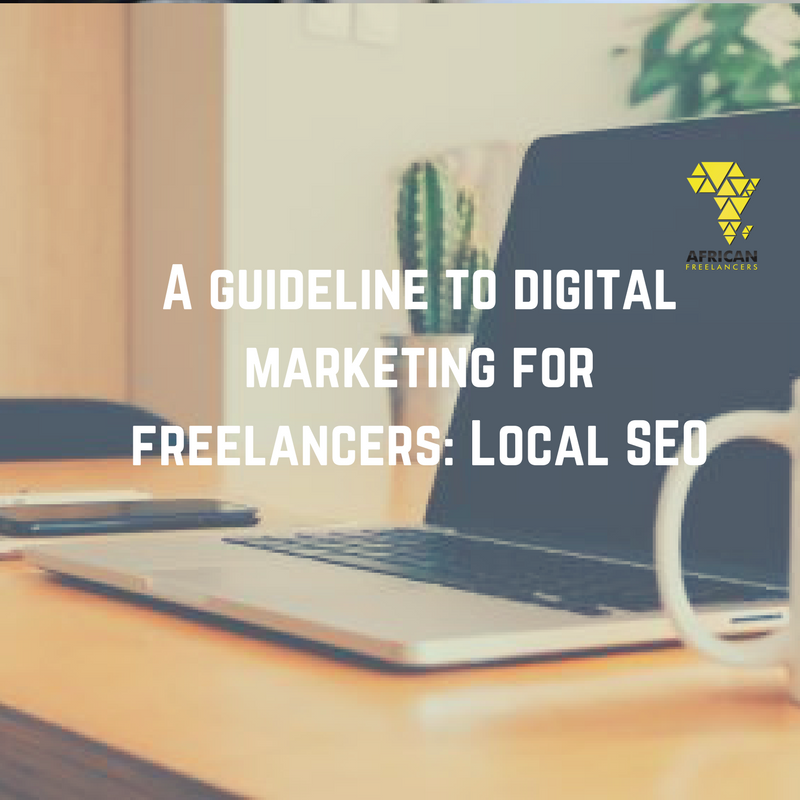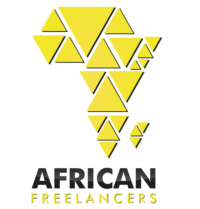Freelancing in Africa, Nigeria especially is really not a walk in the park. Apart from the stereotypical mentality that passion should be enough compensation for the peanuts Creative Freelancers are often offered which is of course, borne out of the fixated belief and assumption that Art is a senseless struggle any ambitious person shouldn’t have ventured into when there are well known and accepted lucrative fields and careers, Creative Freelancers, most of the time, have to work twice as hard to put themselves out there, carve a niche for themselves, get clients, provide quality services, meet deadlines, stand their grounds and demand what they are worth, and in other critical situations, they have to create their own job opportunities amidst unpaid payments written off as bad debts.
If I am honest, I would like to say that my experience so far as a Creative Freelancer is filled with both ups and downs. On a ratio of what’s more and less, I’d say more of downs than ups. There have been moments where I had to learn, grow through and forgive my own naivety, work mistakes and moments of rejections that wanted to define me so bad. In all, I’ve been able to learn a lot of things, make quite a number of adjustments and readjustments alongside renewing my tenacity and dedication to this line I have chosen.
These are some of my discoveries/experiences/lessons as a Freelancer in Africa;
Employers, most of the time wouldn’t mind paying less for more – This is one sad truth I’ve had to discover many times especially with jobs where a Freelancer is not directly working with the client but a middle man. What do I mean? Most of the times, employers in PR/Media industry who offer social media management services and need Freelancers to delegate these works to always want to pay ridiculously less compare to how much the client (the direct employer) who owns the social media account pays for the services that are actually rendered by the Freelancer. I think it is ridiculous that employers most of the time want a quality result and also demand more for a small amount of money while the client pays well. A Freelancer doesn’t have to know how much the client pays but he/she should have a sense of being paid well and not that of doing so much work for little. I’ve come to realize that, the reason so many people don’t want to work under others as employees are not because they want to be bosses so bad, it’s because they yearn for better treatment and value placement in remuneration and attitude.
Demand what you deserve – This is one statement I have pasted in my workspace as a mantra. As Freelancers, it’s important to actually demand and negotiate around what we deserve and not settle for what a client thinks we deserve. A client’s period shouldn’t always become your okay. Don’t say okay, fine out of desperation when they say this is what I can afford, period! Can you work with that? Don’t make unsuitable comfortable. Do not ever think you don’t have a right to decline or say I can’t go lower. The point is, don’t always leave it all up to your client to make decisions and call shots that are 85% yours to call/present most of the time. You have a voice, always use it!
Always sign a contract – This is very important! No matter what the freelance service you’re offering is, always sign a contract. This contract is your guidance and saving grace and it should contain the very core and important aspects of your agreement with your client. Things like the day of payment (if it’s a monthly thing, what day of the month), amount to be paid, job expectations and requirements, etc. should be documented in the contract. One time, I social media-managed someone’s page through a PR outfit without a contract and it was one of the most stressful freelance work moments of my life. I basically took the employer’s word for it. I didn’t think there would be a problem until the job requirements started getting out of hand and I was like is this part of my job too? All these for this pay? And she went, I thought I told you and I was like I guess I didn’t take note and while I was still dealing with that, payment became an issue. I was owed for three months and was still expected to keep working (and I was working) because the client hasn’t paid her and it automatically meant no payment for me too and the worst part is, I was guilt-tripped for every time I complained until I just couldn’t take it anymore and had to walk away. My point is, I know it’s pretty easy to disregard drafting and signing contracts when it comes to social media management because the job expectations are basically content creation, followers engagement and growth and you just gotta wield your magic but it could be dangerous and worse part is, you are not likely to see the danger coming. So, take precautions! Don’t do it without a contract (and this applies to every other job too).
Be intentional and strategic about your freelancing rates – There is one thing we don’t always talk about and maybe that’s because it doesn’t look like an issue but it is. There is this thing I like to refer to as the first-huge pay syndrome. What it means is, there is a time in a Freelancer’s life that he/she is offered a huge sum for service about to be rendered. Now, this sum is huge because that’s the first pay that doesn’t seem to be a peanut and it’s a deviation from the norm, so the Freelancer becomes so excited that he/she doesn’t think there’s anything to be thought through other than an immediate yes and a let’s get the ball rolling vibe until he/she discovers through other Freelancers that the payment was nothing but an underpay. The point is, always think your charges through. Don’t let excitement get the better of you that you don’t strategically and intentionally draft your freelancing rates.
Read contracts well and thoroughly – It’s very dangerous to flash/quick read a contract. Don’t just sign, read, digest and understand what you’re signing. Check for loopholes; ask for clarifications where the constructions seem like a snare. Be sure there’s nothing that would work against you. I remember my very first freelance job as a screenwriter and there’s this part of the contract that says I’ll be balanced after the movie is made and I didn’t really see the problem with that because the largest part of the money would be paid and now four years after, the movie is not made yet (at least, that’s the reasonable excuse I could come up with on behalf of the client), the employer is all of a sudden anti-emails and I’ve found peace writing off the balance as bad debt. So, take your time with contracts. Be sure you know what you’re signing. Don’t let anyone pull a fast on you. Trust me, it’s pretty easy!
Be gentle with yourself and allow yourself to grow through the craft – This is very important. I realize there are moments on this job where you’d have to forgive and be gentle with yourself or else, you’re going to stop growing even if the sun stays shining because you’re withholding water from yourself. Last year, I took a creative writing job and I couldn’t finish it because I was horribly struggling with my mental health and physical health. It was one of the most regrettable and excruciating moments for me because, at the end of the day, things went sour with the client even though she showed me a level of understanding I wished was all I needed to come through. One thing about being mentally ill is most of the time, you don’t see it coming. Sometimes, it happens while you’re on a job and some other time, it shames you and makes you feel like a horrible manager of your illness to the extent that you begin to question your ability to work and if care is not taken, you drive close to quitting but you have to learn not to give up or walk away from yourself. You cannot afford to quit; you have to lift yourself back up. You’re more than your personal struggles and it’s not an overall determinant of your work productivity. There are moments you won’t automatically just win (snap out of) with depression and others like it; sometimes, it will take weeks, months but if you must not lose your fire and the overall essence of who you are and who can become professionally, you have to be gentle with yourself. Also, forgive yourself for the naïve days – days when you charged less, took less, wished you had the strength to demand more, wished you did things differently; if you don’t, it’ll keep dragging you back. Believe me, you need those days to make wiser decisions. Sometimes, you discover yourself, likes and dislikes on a job and not outside it. You’re a human being with work life, not a robot! So you are allowed to have moments, go and grow through it.
In conclusion, you don’t always have to settle for less. People will pay you what you’re worth; don’t be afraid to demand! Sometimes, you make bad mistakes and things may not end well, forgive yourself, make peace with your wrongs and move on. Don’t quit. Don’t shut yourself out. Be smart. A contract is everything. There’ll be a couple of unpaid payments you would have to write off as bad debts, don’t worry, your account will be just fine if you don’t let the many downs get to you. Don’t write yourself off because of a few Nos and rejections; you’ll get them but they don’t define you.
Above all, if you’re living with a mental illness, believe me, you can win. I know people get victimized, stigmatized and sidelined in professional spheres because of their mental illnesses but you’re resilient, talented and strong and your consistency may not come without a fight but you’ll definitely win. Life is one big fight and so is Freelancing! Pay attention to your highs than your lows; that’s how you keep going on! If you don’t give up, you’ll rise up.







5 comments
Do you need any specific academic qualification to be a writer
So proud of you
keep shining!
Thank you, Tessa!!!
You are always a good read.keep it up!
Thank you!!!
Comments are closed.